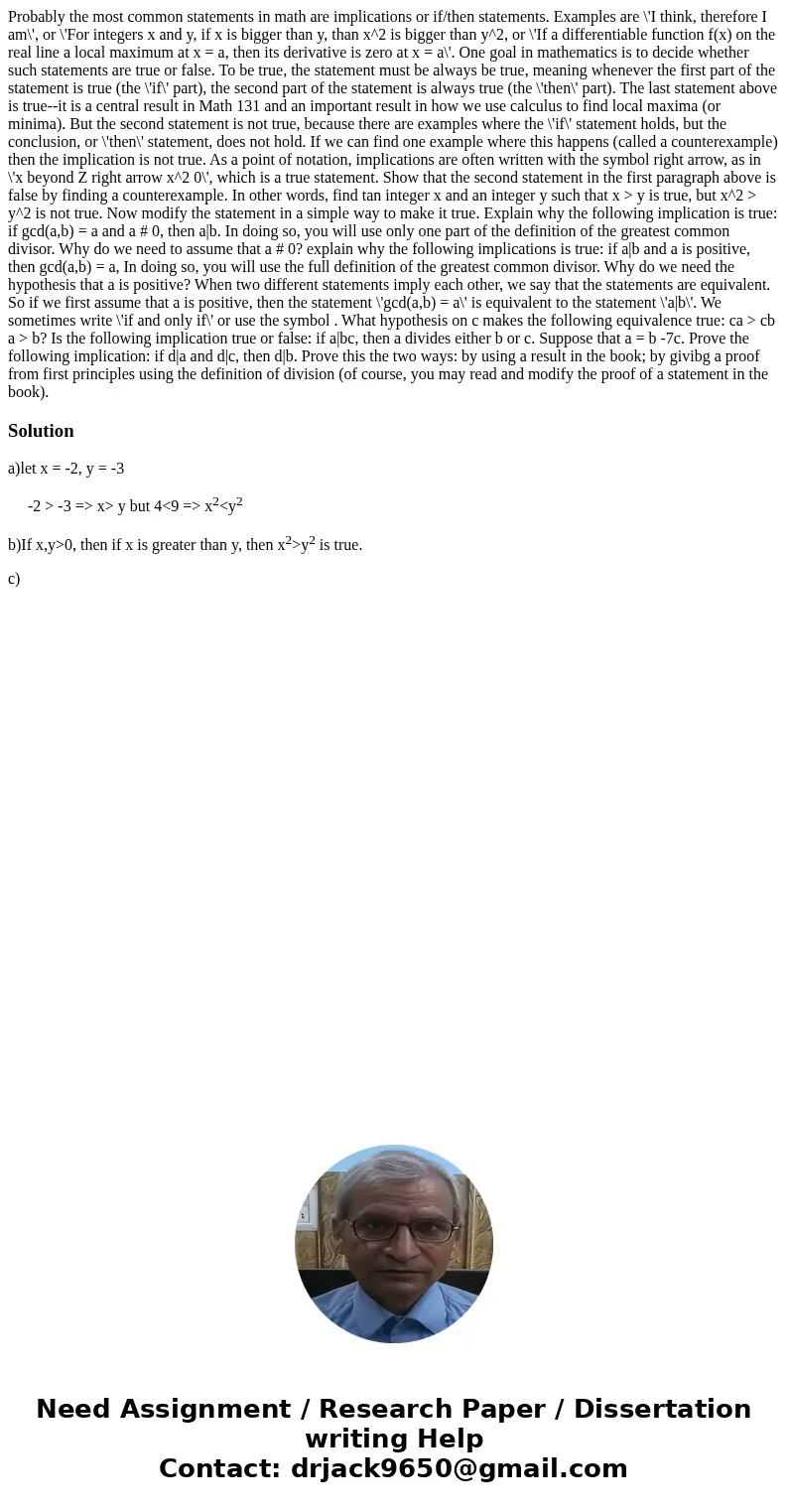Probably the most common statements in math are implications
Probably the most common statements in math are implications or if/then statements. Examples are \'I think, therefore I am\', or \'For integers x and y, if x is bigger than y, than x^2 is bigger than y^2, or \'If a differentiable function f(x) on the real line a local maximum at x = a, then its derivative is zero at x = a\'. One goal in mathematics is to decide whether such statements are true or false. To be true, the statement must be always be true, meaning whenever the first part of the statement is true (the \'if\' part), the second part of the statement is always true (the \'then\' part). The last statement above is true--it is a central result in Math 131 and an important result in how we use calculus to find local maxima (or minima). But the second statement is not true, because there are examples where the \'if\' statement holds, but the conclusion, or \'then\' statement, does not hold. If we can find one example where this happens (called a counterexample) then the implication is not true. As a point of notation, implications are often written with the symbol right arrow, as in \'x beyond Z right arrow x^2 0\', which is a true statement. Show that the second statement in the first paragraph above is false by finding a counterexample. In other words, find tan integer x and an integer y such that x > y is true, but x^2 > y^2 is not true. Now modify the statement in a simple way to make it true. Explain why the following implication is true: if gcd(a,b) = a and a # 0, then a|b. In doing so, you will use only one part of the definition of the greatest common divisor. Why do we need to assume that a # 0? explain why the following implications is true: if a|b and a is positive, then gcd(a,b) = a, In doing so, you will use the full definition of the greatest common divisor. Why do we need the hypothesis that a is positive? When two different statements imply each other, we say that the statements are equivalent. So if we first assume that a is positive, then the statement \'gcd(a,b) = a\' is equivalent to the statement \'a|b\'. We sometimes write \'if and only if\' or use the symbol . What hypothesis on c makes the following equivalence true: ca > cb a > b? Is the following implication true or false: if a|bc, then a divides either b or c. Suppose that a = b -7c. Prove the following implication: if d|a and d|c, then d|b. Prove this the two ways: by using a result in the book; by givibg a proof from first principles using the definition of division (of course, you may read and modify the proof of a statement in the book).
Solution
a)let x = -2, y = -3
-2 > -3 => x> y but 4<9 => x2<y2
b)If x,y>0, then if x is greater than y, then x2>y2 is true.
c)

 Homework Sourse
Homework Sourse